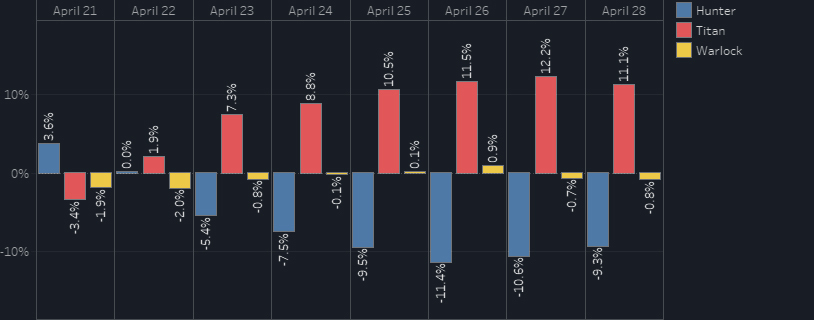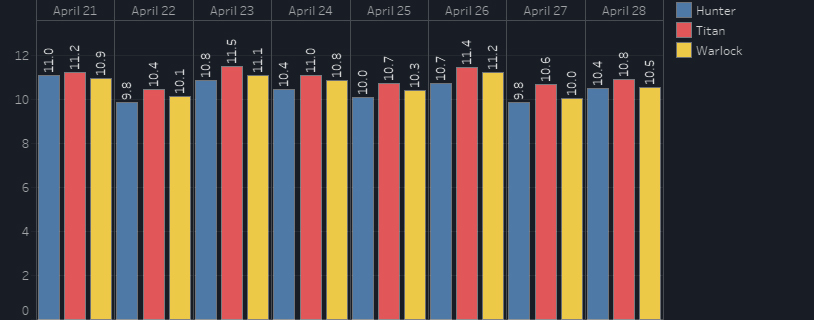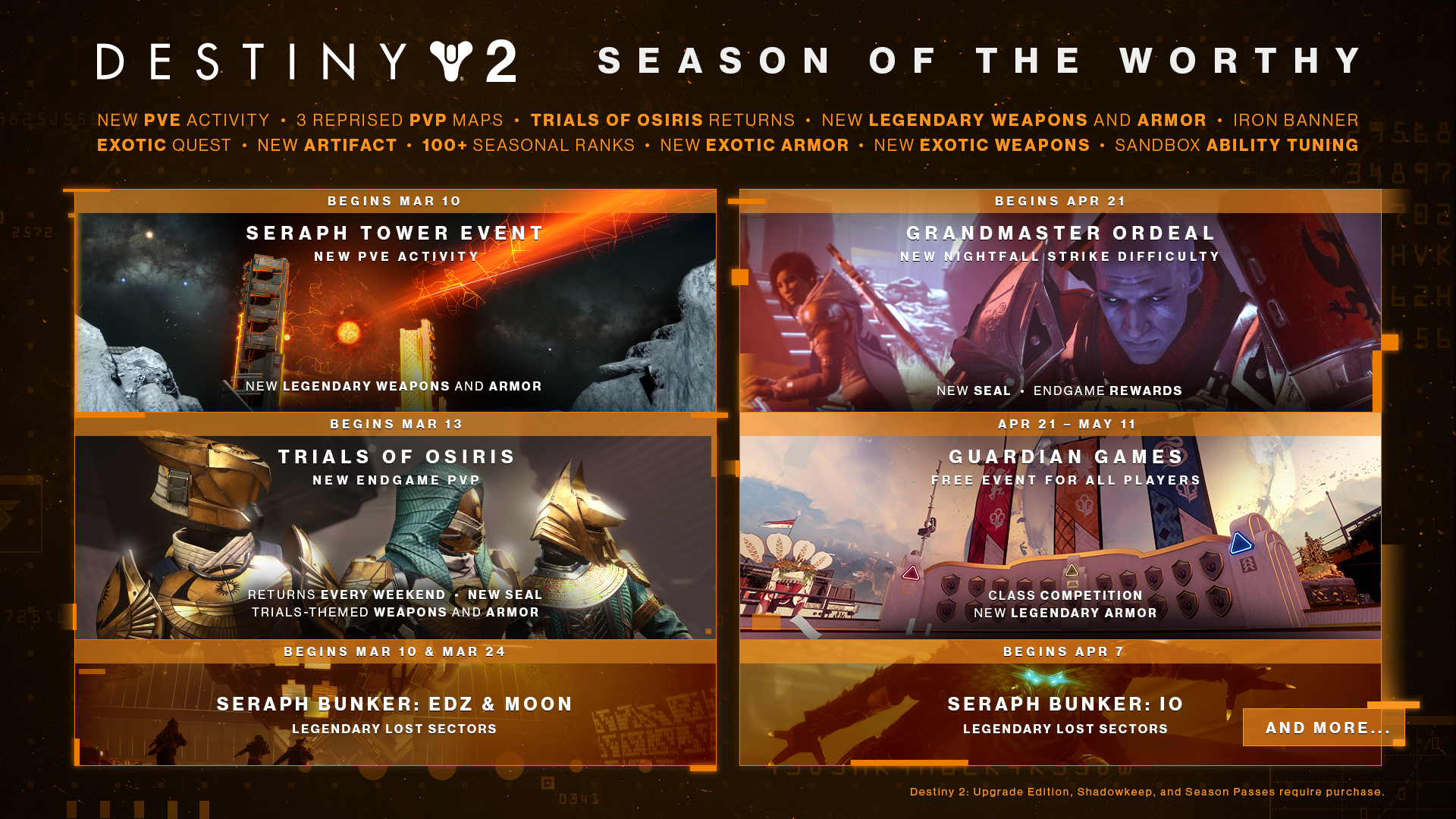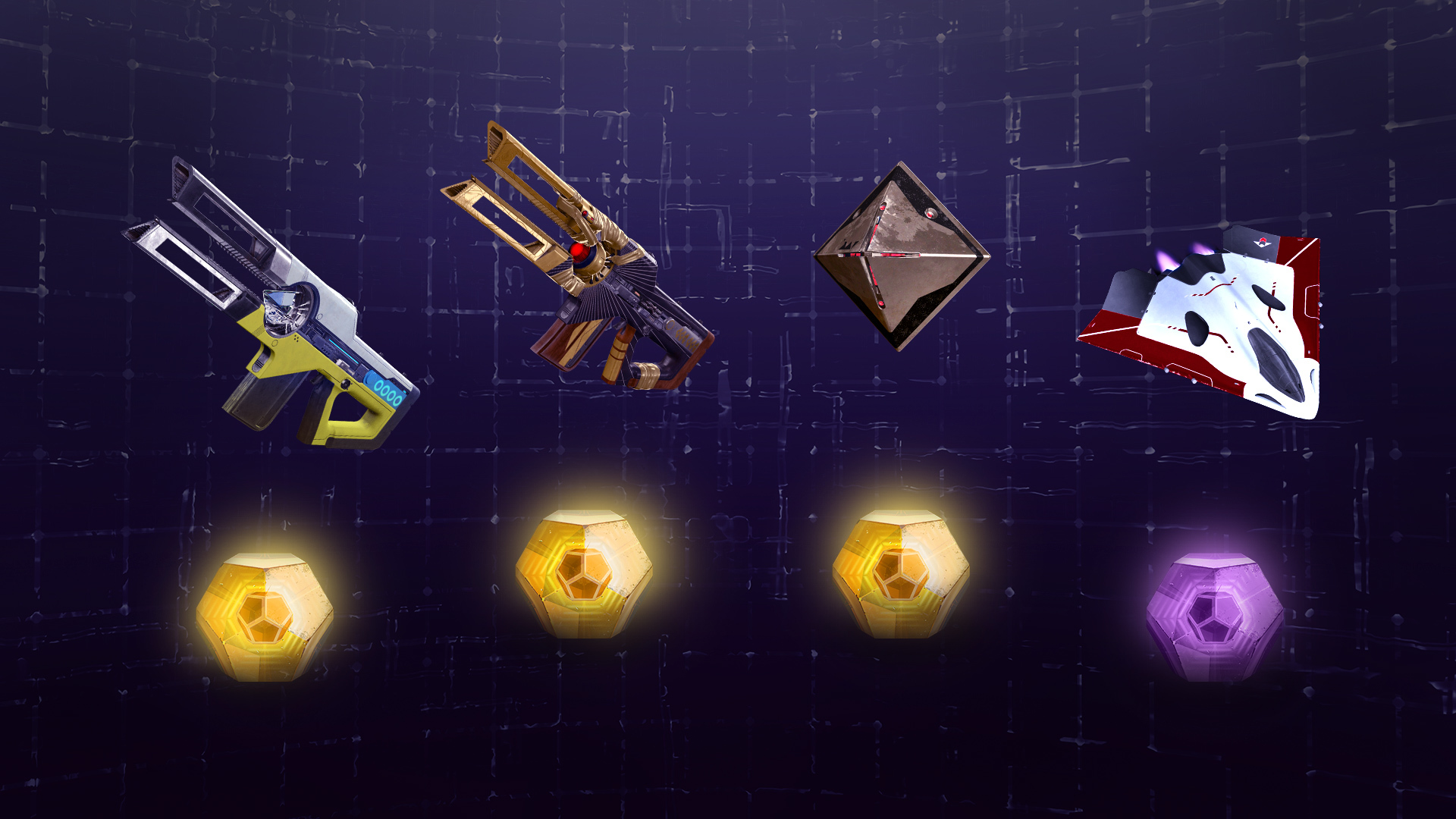
May 28, 2020
Destiny 2 - Cozmo
This week at Bungie, we look to the sky.
Ever since this Season began, the Almighty has been hurtling through space on its collision course with Earth. The Cabal are not known for their graceful defeats. Every day we spend preparing our long lost Seraph to mount a response, that derelict destroyer rockets ever closer to our home, spelling certain doom for the City.
Rasputin is at full power. We're as ready as we'll ever be. Now, eclipsing our own sun is a stark reminder that a great threat approaches. Eyes up!
This year finds us all in a scenario that puts us all very far away from business as usual. Basically, all flights originating from our Tower are grounded. Development of Destiny 2 continues, only we are all working from the safety of our homes. We have exciting news to share with you about our plans, but it won’t happen at some fancy convention under hot lights. Instead, we'll use the Internet.
If you are familiar with the rituals and cycles that mark a year in the life of a Guardian, you must be curious as to when we'll begin a conversation about what is next. We can't put a date on that just yet, but we will very soon. That's a promise. We know you're hungry for that news and we're just as eager to deliver it.
Keep your eyes trained on @Bungie for updates. We’ll stream our announcements in the usual places. You’ll learn about the next Season of Destiny 2 at the same time that we talk about the next chapter in this story that has been unfolding all year long.
Check out the full TWAB for more!
Ever since this Season began, the Almighty has been hurtling through space on its collision course with Earth. The Cabal are not known for their graceful defeats. Every day we spend preparing our long lost Seraph to mount a response, that derelict destroyer rockets ever closer to our home, spelling certain doom for the City.
Rasputin is at full power. We're as ready as we'll ever be. Now, eclipsing our own sun is a stark reminder that a great threat approaches. Eyes up!
WHAT'S NEXT?
Destiny has been a shared pastime for long enough now to have established some strong traditions. Each year we spend in service of the Guardians, we can mark our calendars by the next development milestone we’ll reach or the next event we’ll attend to spread the news. Some of us have had the remarkable privilege to travel the world and meet some of you fine people to talk about what comes next.This year finds us all in a scenario that puts us all very far away from business as usual. Basically, all flights originating from our Tower are grounded. Development of Destiny 2 continues, only we are all working from the safety of our homes. We have exciting news to share with you about our plans, but it won’t happen at some fancy convention under hot lights. Instead, we'll use the Internet.
If you are familiar with the rituals and cycles that mark a year in the life of a Guardian, you must be curious as to when we'll begin a conversation about what is next. We can't put a date on that just yet, but we will very soon. That's a promise. We know you're hungry for that news and we're just as eager to deliver it.
Keep your eyes trained on @Bungie for updates. We’ll stream our announcements in the usual places. You’ll learn about the next Season of Destiny 2 at the same time that we talk about the next chapter in this story that has been unfolding all year long.
Check out the full TWAB for more!










